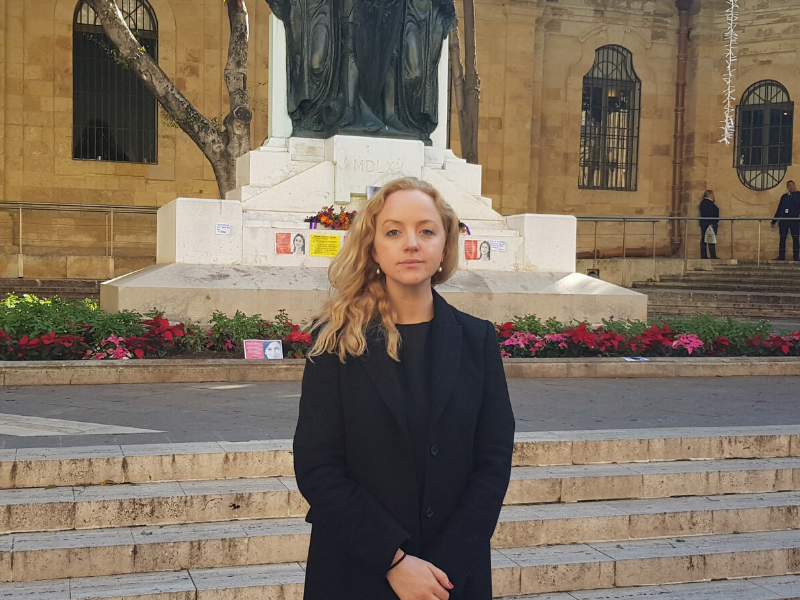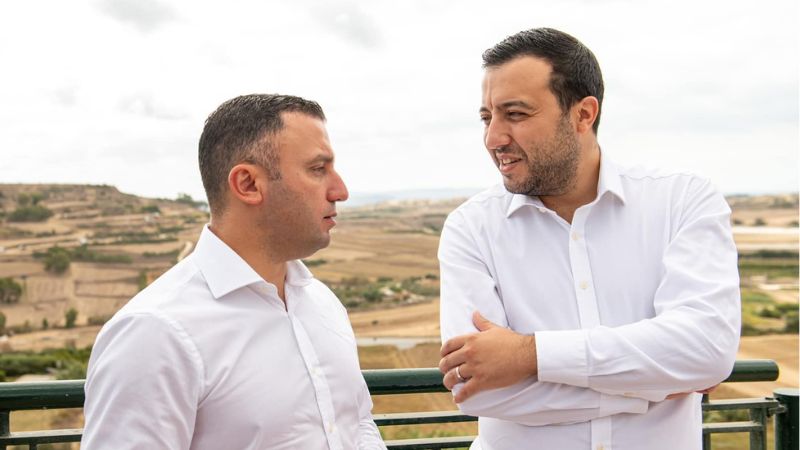The government’s press freedom proposals have “a long way to go,” Article19’s Head of Europe and Asia team Sarah Clarke told members of a press freedom conference in Malta on Thursday.
Summarising the press freedom iNGO’s suggestions following an analysis of the government’s and the opposition’s press freedom proposals, Clarke said that they would like to see transparency and meaningful consultation throughout this process, in particular with press freedom iNGOs, the Council of Europe and the Organization for Security and Co-operation in Europe (OSCE).
Reflecting what other international press freedom organisations have already said, Clarke said that Article19 would like to see the proposed recommendations revised to “fully implement requirements of the public inquiry and entrench journalism as the fourth pillar of democracy, and to see the anti-SLAPP proposals which currently ‘fall far short of best practice‘ strengthened”.
Clarke was speaking at a public conference organised by Repubblika, the Daphne Caruana Galizia Foundation, Pen Malta and SOS Malta focused on freedom of speech and the protection of journalists. She stressed the need for the findings of the public inquiry into the assassination of journalist Daphne Caruana Galizia to be implemented for it to “never happen again”.
“It is important that the government introduces adequate responses to deal with the gravity of the findings of the inquiry,” she said. Clarke explained that the process of the inquiry could be replicated in other countries. “The world is watching to see what Malta will do.”
Government ‘more concerned with regulating the media than enabling it’
Clarke told the conference attendees that Article19 has met with Prime Minister Robert Abela and seen the draft proposals that are “more concerned with regulating the media than enabling it”.
“We noted in our meetings with the prime minister that we were aware of the draft proposals and that we were concerned that their direction was more at regulating the media than enabling it. We’d also highlighted our concern that there was a lack of transparency in the process.”
Our conference on #MediaFreedom & #ProtectionofJournalists has come to an end. Its objective can be summed up in what @Sarah_M_Clarke from @article19org said in her presentation: We don't want regulations but an enabling environment for #journalists.
Thank you to all speakers! pic.twitter.com/jE4Gl0Q0uf— repubblika 🇲🇹 #JusticeForDaphne 🌿 (@repubblikaMT) February 24, 2022
She said that the lack of publication of the proposals is more of a concern when it is the government, rather than the committee of experts, that have presented them.
“Unfortunately, while the government has claimed to have consulted with international freedom of expression organisations like Article19, we actually had to release a statement in response to say that while a meeting had been held, this offered of technical assistance has not been taken up by the prime minister,” she said, adding “we stand ready to assist and we hope we are included in this process”
In her comments, Opposition MP and the Caruana Galizia family lawyer Therese Comodini Cachia backed Clarke. “We are not after regulation, we are after having an enabling environment,” Comodini Cachia said. “We need to ask whether each idea going to the committee is being done to regulate or to enable journalism. If it is to enable journalism, it is a good proposal. If the answer is to regulate journalism, then it’s a bad proposal – that’s the main message.”
Anti-SLAPP laws sew ‘confusion’
While Abela has “with some strength” announced that Malta is one of the first countries in Europe to unveil anti-SLAPP proposals, the proposals have caused “confusion” with international organisations, Clarke said.
She explained that the process has not been a transparent one, firstly because the proposals were not published, but only published by third parties. She also noted how the proposals were not sent to Brussels or Strasbourg for a thorough analysis, as is usually done.
She said that the proposals do not contain two major tenants that are being pushed at the EU level – the early dismissal of SLAPP cases, and penalties in the form of a fine.
Clarke went on to say that it would be a “shame” if the government were to present such proposals at a point where the European Commission will be unveiling anti-SLAPP proposals in Brussels – a process majorly pushed by the Caruana Galizia family in Malta. “It would fall short if the government proceed with the proposals as they stand,” she said.














What good are even the most beautiful laws if the government declares it has no written contract or has lost the contract?
A corrupt pigsty cannot become a clean government.
This is also the case here.
Democracy is not a mafia state.